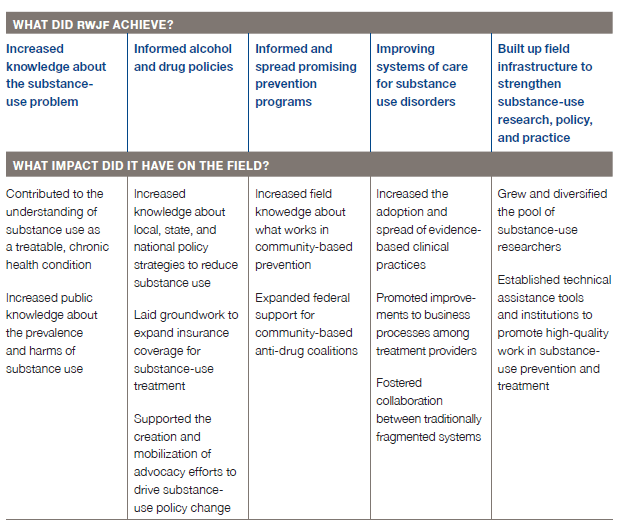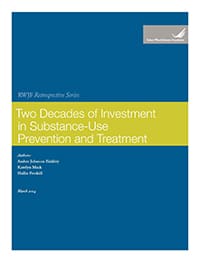Over two decades, the Robert Wood Johnson Foundation (RWJF) made an unprecedented philanthropic investment in substance-use prevention and treatment, driving substantial evolution in the field. RWJF and its grantees were leading contributors to progress related to increased knowledge of the substance-use problem, relevant policies and advocacy, efficacious prevention programming, and field-building to strengthen research and practice. In addition to these successes, RWJF evaluated its program’s impact and uncovered lessons on how it could have furthered its mission through adoption of a more focused strategy and more effective linking of its strategy to evaluation efforts.
Top Takeaways
- The Robert Wood Johnson Foundation (RWJF) dedicated nearly $700 million over the course of two decades to substance-use prevention and treatment efforts, establishing over 33 major national programs and initiatives and supporting over 1,500 individual grants.
- RWJF’s achievements in the substance-use field include building the evidence base for effective interventions, raising awareness of the problem of youth binge drinking, enhancing understanding of addiction as a treatable medical condition, and supporting the development of high-quality standards of care for substance-use and addiction treatment services.
- While RWJF significantly contributed to the substance-use field, this assessment identified missed strategic opportunities for increased impact, including the need for: an explicit, overarching strategy to guide programmatic decisions; broader engagement with a wider set of stakeholders to better coordinate and maximize efficiency of available resources; and, piloting of innovative program strategies for better learning and refinement.




